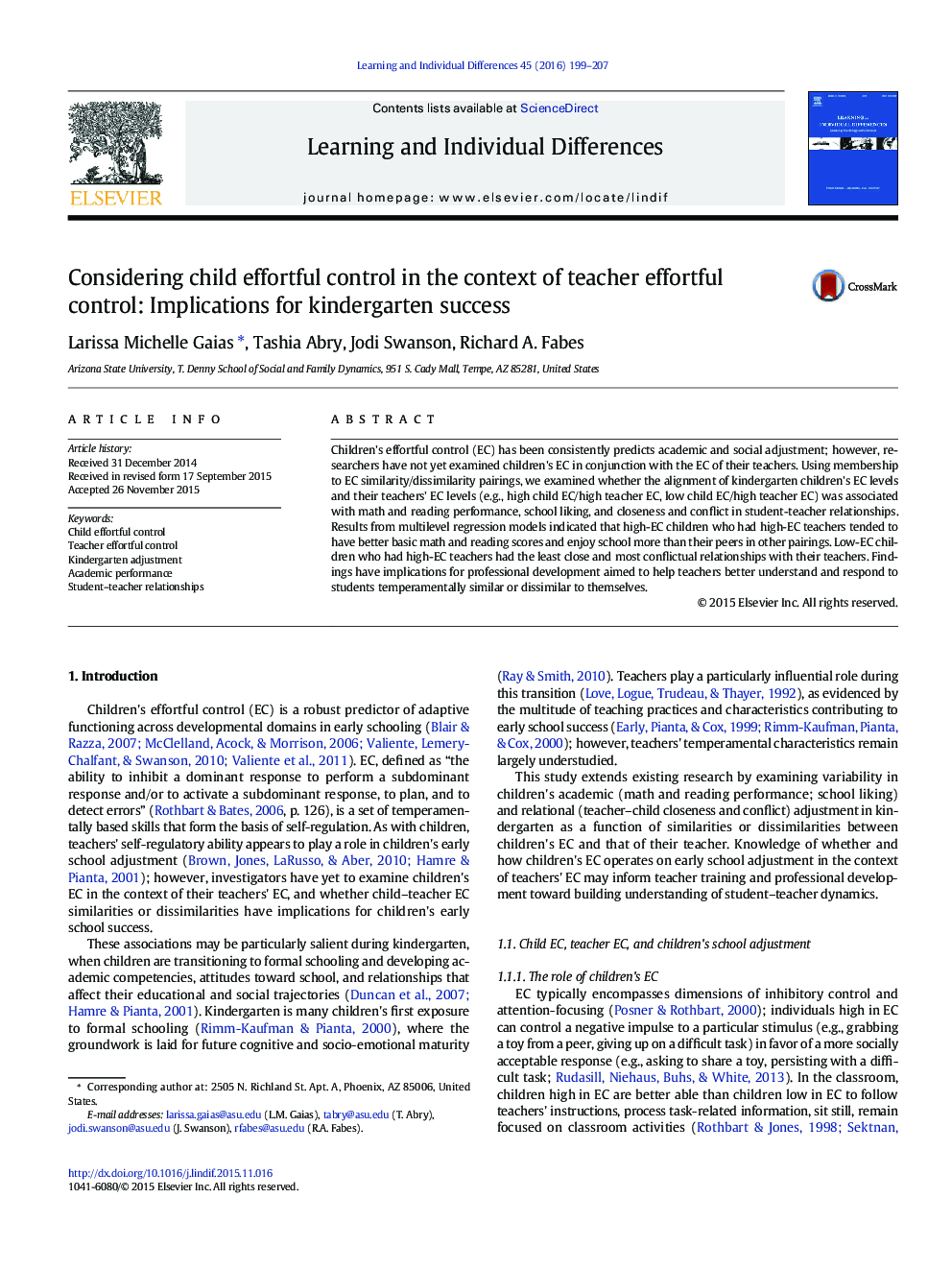| Article ID | Journal | Published Year | Pages | File Type |
|---|---|---|---|---|
| 364520 | Learning and Individual Differences | 2016 | 9 Pages |
•Children were assigned to one of four groups based on their and their teacher's effortful control (EC).•Multilevel regression models examined mean differences among groups on kindergarten adjustment outcomes.•High-EC children with high-EC teachers tended to outperform other groups on reading and math assessments.•High-EC children with high-EC teachers tended to enjoy school more than other groups.•Low-EC children with high-EC teachers had the least close and most conflictual relationships with teachers.
Children's effortful control (EC) has been consistently predicts academic and social adjustment; however, researchers have not yet examined children's EC in conjunction with the EC of their teachers. Using membership to EC similarity/dissimilarity pairings, we examined whether the alignment of kindergarten children's EC levels and their teachers' EC levels (e.g., high child EC/high teacher EC, low child EC/high teacher EC) was associated with math and reading performance, school liking, and closeness and conflict in student-teacher relationships. Results from multilevel regression models indicated that high-EC children who had high-EC teachers tended to have better basic math and reading scores and enjoy school more than their peers in other pairings. Low-EC children who had high-EC teachers had the least close and most conflictual relationships with their teachers. Findings have implications for professional development aimed to help teachers better understand and respond to students temperamentally similar or dissimilar to themselves.
